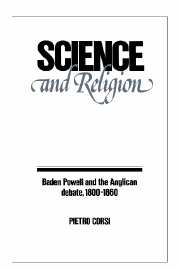7 - The teaching of Richard Whately
Published online by Cambridge University Press: 15 December 2009
Summary
During the 1820s Whately's reputation grew steadily in Oxford and throughout Britain. His famous Historic Doubts relative to Napoleon Buonaparte (1819) was followed by a flow of publications which established Whately as one of the most prolific Anglican authors of the third decade of the century. Copleston increasingly devoted his time to political manoeuvring and to London social life: ill health and his ‘natural indolence’ made him unwilling to embark upon any major literary project. Whately was thus the only member of the early Noetic school still actively engaged in theological and philosophical debate. Furthermore, after 1825 several pupils and friends of Whately were coming back to Oxford to occupy positions of prestige and academic influence.
In 1825 Whately was appointed Principal of St Alban Hall. The plan of taking over one of the small colleges in order to circumvent resistance to change and improvement was an old idea of Copleston's. As was often the case with Copleston's programmes, it was Whately who realized the plan. Whately proved to be a very able principal. The academic record of St Alban Hall underwent a dramatic change. In his work of reform Whately was helped by J. H. Newman, one of his most promising pupils.
In 1825 Nassau Senior, a former pupil and lifelong friend of Whately, was elected first Drummond Professor of Political Economy. Senior lectured in Oxford to a disappointingly decreasing audience till 1829, the year in which Whately decided to place his reputation at the service of the newly established academic discipline. In 1826 Blanco White, a friend of Whately from the early 1810s, obtained an honorary M.A. as reward for his Evidences against Catholicism.
- Type
- Chapter
- Information
- Science and ReligionBaden Powell and the Anglican Debate, 1800–1860, pp. 85 - 95Publisher: Cambridge University PressPrint publication year: 1988

